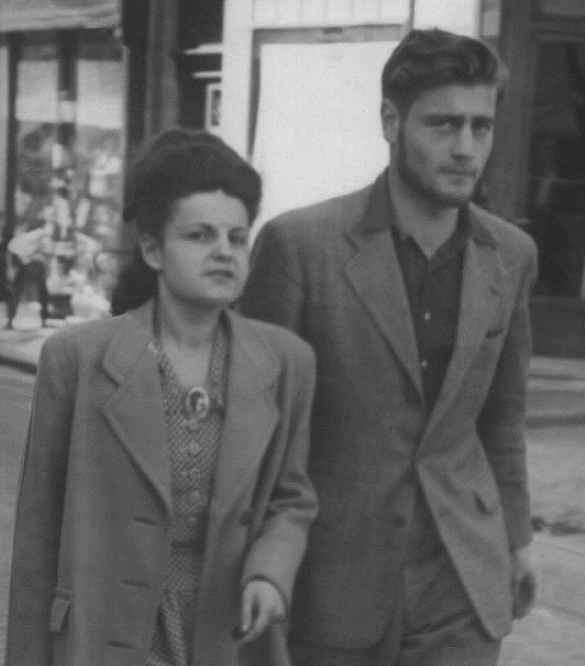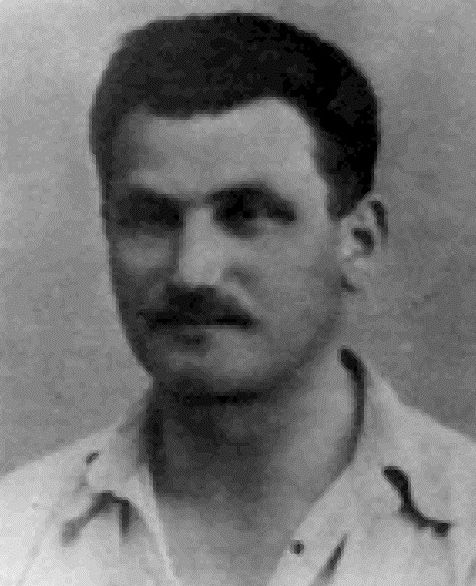
French Jewish partisan Bernard Musmand with Simone, a member of the French resistance. Photograph taken in Montpellier, Franc, during the war. - Courtesy of the Jewish Partisan Educational Foundation.
by LEILA GREIGE and TAYLOR WINTERS
The Remember the Holocaust Project, along with the Blue and Gold, has published obituaries for victims of the Holocaust throughout the year. With the support of the Jewish Partisan Educational Foundation, the Blue and Gold has published obituaries in every edition and agrees with the Malden High School History Department, which hopes this series “endure[s] for years to show a lasting commitment to honor victims of genocide.”
Bernard Musmand

In 1930, Bernard Musmand was born in Metz, France. When the Nazis took over in the year 1940, they forced his family to move to the south of France which was outside of German control. Bernard was then sent to a boarding school where he had to pose as a Catholic. “There he became a courier for the Sixième, a resistance group, and transported falsified papers for those escaping Nazi persecution.”
Bernard would even sometimes have encounters with the Germans or French sympathizers but he knew how to be confident so he would not give away his real identity. Sometimes, he would even ask for the time or a match in perfect German so it would ease any suspicions others may have about him.
“When the Gestapo came to the boarding school looking for Bernard, the dean arranged his escape before the Germans could capture him. Bernard went to Millaut and again joined the Sixième, all of whom joined the Maquis armed resistance. Aged fourteen and very afraid, Bernard went into an ambush against Nazi troops, gaining bravery once in battle.”
“When the French Army reformed he was made Second Lieutenant, but given a desk job. Refused permission to fight on the German front, he revealed in exasperation his age and Jewish identity. Within two weeks he was relieved of duty and sent back to his family and his schoolmates.”
“It was an exciting time, in certain ways,” Bernard remembers. “I wish and hope it will never come back, but everything counted and you felt life was precious.” As a young man he swore, though, never to speak German again. “I knew it was hateful; I know what the Germans did for Israel—but I can’t forget.” Bernard has not since uttered a word of the invader’s language.”
Bernard passed away in January 2010.
Tuvia Bielski

Tuvia Bielski was born in Stankiewicze, in western Belorussia, in 1906. When Germany invaded the Soviet Union in June of 1941, Tuvia and his younger brother Zus told themselves that they would never be caught by the Germans.
“In early 1942, Tuvia began hearing rumors about partisans, and decided that if he and his fellow Jews were to survive, he must acquire arms and organize all-Jewish resistance groups. Along with two of his brothers, Zus and Asael, Tuvia began organizing Jews. By May of 1942, Tuvia was in command of a small group, which by the end of the war had grown to 1,200 people, and was known as the Bielski otriad (otriadis the Russian word for a partisan detachment). Tuvia had focused on saving as many Jews as possible, and would accept any Jew into his group. Many came through the family of Konstantin Kozlovski, a non-Jew, who provided shelter for Jews escaping from the Novogrudok ghetto and worked with the partisans to free hundreds of Jews from the ghetto.”
The Bielski otriad carried out food raids, killed German collaborators, and sometimes joined with a Russian partisan group in anti-Nazi missions, such as burning the ripe wheat crop so the German soldiers couldn’t collect and eat the wheat. Additionally, the Bielski otriad would seek out Jews in the ghetto willing to risk escape to the forest, and send in guides to help them.
By the summer of 1943, Tuvia was the leader of 700 people. In the Naliboki forest, Tuvia set up a functioning community, with everyone working to support the community in a variety of ways. There was a hospital, classrooms for the children, a soap factory, a Turkish bath, tailors, butchers, and even a group of musicians who played at festivals. Beyond meeting the needs of its own members, the Bielski otriad was able to provide services to other partisan groups in exchange for food and arms.
By the summer of 1944, the group had grown to 1,200. The group consisted mainly of the elderly, women, and children. Tuvia’s group was the largest of the Jewish partisan groups.
A high percentage of those he led survived, due to Tuvia’s strong and effective leadership, and his determination to save as many Jews as possible.
After the war, Tuvia moved first to Israel and later to the United States, where he died at age 81.
The amazing story of the Bielski partisans was turned into the motion picture Defiance in 2009.




